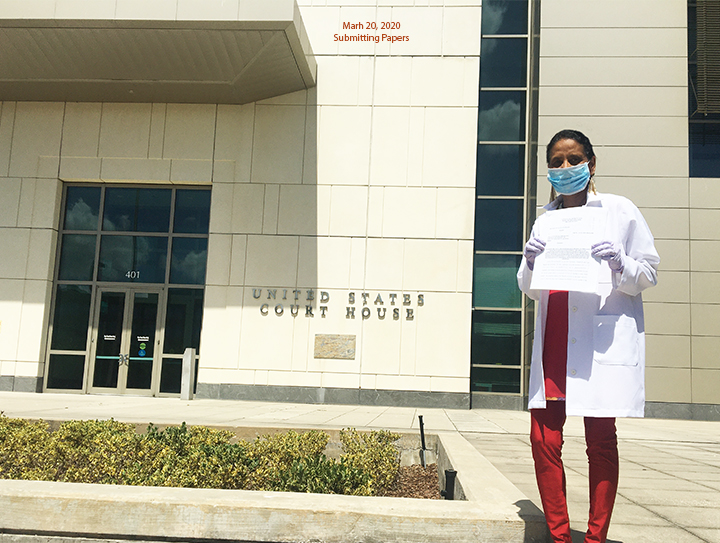There are two sides to a lawsuit. If one is denied access to file using the same ‘system’ as the other side, that’s not “Equal Justice Under Law” as inscribed on the highest court of the land’s building. See Greene v. Frost Brown Todd, LLC, 856 F.3d 438 (6th Cir.2017) It’s unconstitutional. In Florida, state court efiling is mandatory for all parties. That is exactly how it should be in Federal Courts or the Constitution is merely a parchment with words with no meaning.
A person not represented by an attorney may file electronically only if allowed by court order or by local rule; and may be required to file electronically only by court order, or by a local rule that includes reasonable exceptions.
The self–represented litigants do not have access to an electronic system of the federal District court but it is only allowed to the one represented by a counsel thereby they are provided with the tools for safety and is not subject to clerical errors, lost and delayed mails. This is not equal access and is against the spirit of “Equal Justice Under Law” and this unlawful exception is unconstitutional and is against our democracy. There is no national uniformity per Professor
Edward H. Cooper and can be checked by clicking on the following link:
https://lawsintexas.com/electronic-filing-by-pro-se-in-federal-district-courts-should-bemandatory-as-per-state-courts/
The risk of exposure and spread of the deadly virus is increased when people are required to visit the post office to mail the paper filings as they must stand in line with those who may be infected in order to calculate and purchase postage or they must touch unsanitized self-service machines that are touched by many others each hour. Hand delivery to the court also increases exposure to other members of the public unknown to them as well as employees.
The appellate Federal Court (11th Circuit) and state court both allow filing electronically for self-representing citizens. Because electronic filing has ZERO risks of spreading COVID-19, it should be granted as an exception to prevent the spread of the deadly disease by any judge in the Federal Court.
Judge Mendoza disregarded the exceptional criteria of the national emergency and denied electronic filing. Instead, Judge Mendoza advised to mail the documents which also has inherent risk of exposure.
The risk of exposure and spread of the deadly virus is increased when people are required to visit the post office to mail the paper filings as they must stand in line with those who may be infected in order to calculate and purchase postage or they must touch unsanitized self-service machines that are touched by many others each hour. Hand delivery to the court also increases exposure to other members of the public unknown to them as well as employees.
